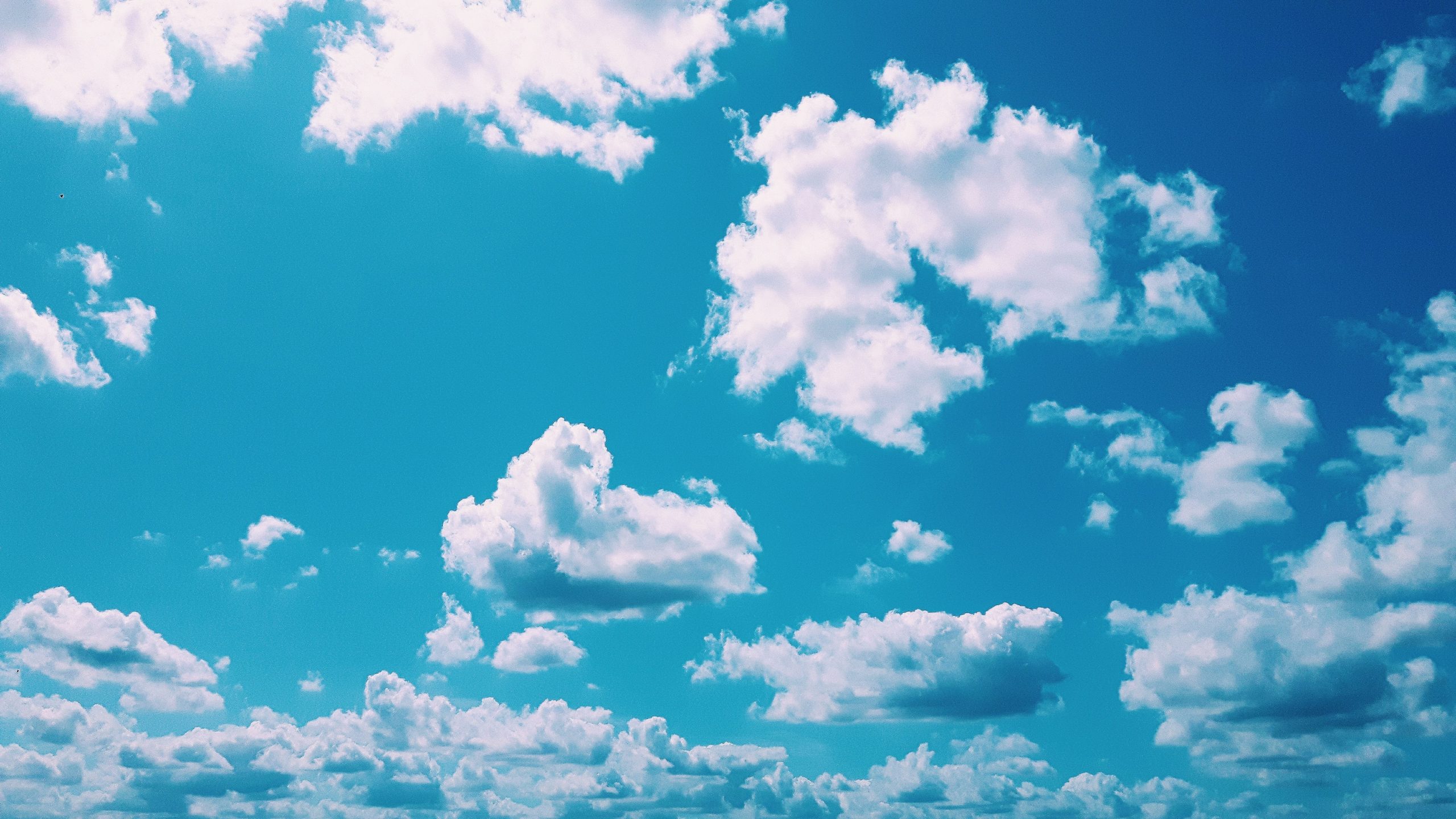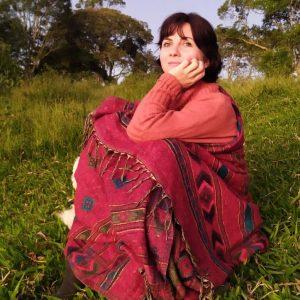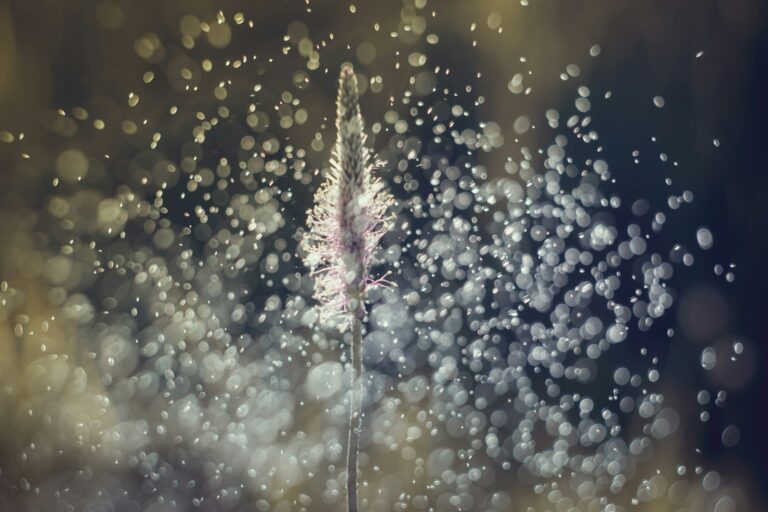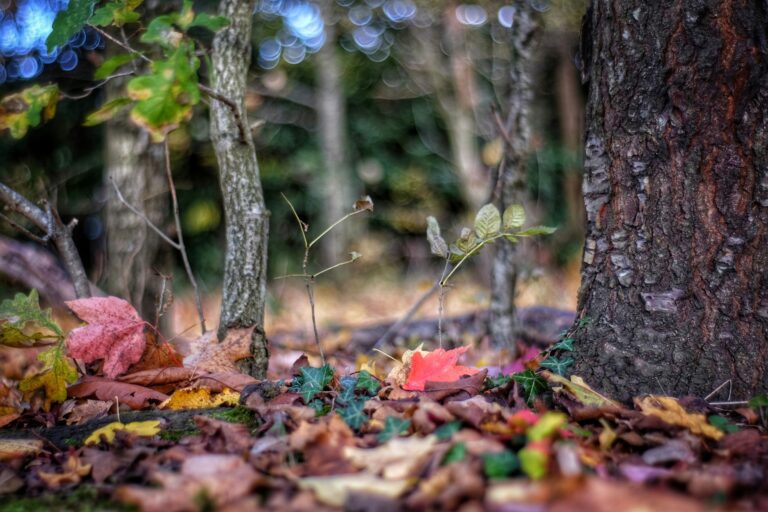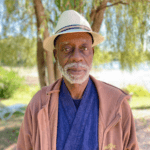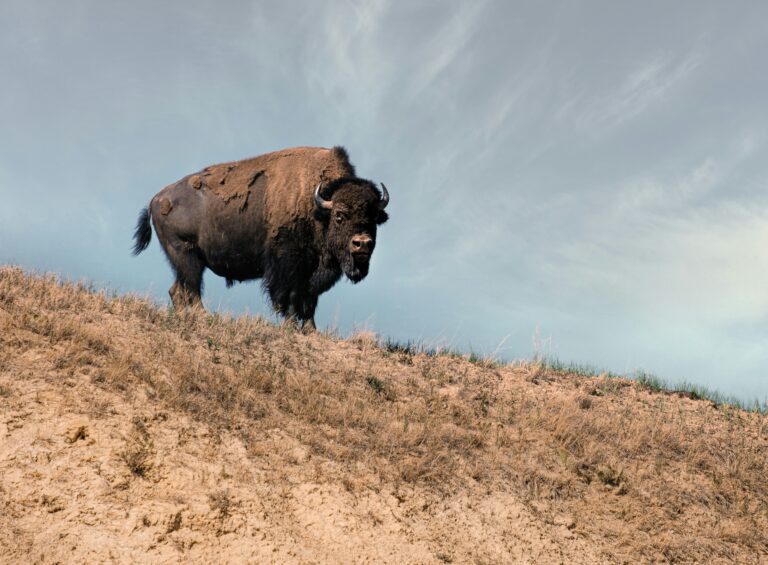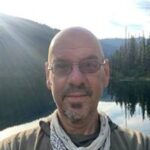Traveling and learning about different cultures, witnessing new landscapes, and meeting new people who presented new visions of the world. This was always something that moved me in life. I took one trip after another, experiencing so much and feeling a sense of purpose as if I were some sort of intermediary between East and West. It was only when the pandemic hit that I experienced the opposite of what had always moved me. I paused—perhaps for the first time, I really paused—and eliminated all plans for new adventures.
Suddenly, none of us could plan for the future; we simply had to make the best of where we were in the moment. The world was no longer there to receive me or to offer entertainment. I had a strange new feeling of being “banned from the playground.” It might sound funny or perhaps a little infantile, but I concluded that it was true.
How had I been treating the world all this time? What was I looking for? I looked inside myself and realized that I had actually expected that the world and all its wonderful things could entertain me, give me experiences, reasons, and purpose. I questioned my love for nature, for culture, and for places. I could not see myself moved by any other wish than to “have something” from anything I did. I think that this has become a pretty “normal” and acceptable way to live, and you might even be thinking that there’s nothing wrong with that. But I questioned. Was I sucking life out of the world unceasingly, and not even leaving room within my own perception to see the world except in terms of how it could serve me? Did I ever think, for a moment, how I could serve the world, nature, and the deeper essence of humanity? Ot at least a small portion of it?
And so I paused, as everybody else paused. I contemplated the ways in which society and culture had shaped who I am, how I think, and their influence on my hopes and dreams and desires. In reflecting, I also looked into my subtle addictions to social media interactions. Soon, with these thoughts swirling in my mind, I decided to nurture each moment I spent sat in the hammock on my veranda, overlooking the valley and the jungle beyond that extends to the horizon where I live. I decided to simply gaze at the sky and just be.
Was I sucking life out of the world unceasingly, and not even leaving room within my own perception to see the world except in terms of how it could serve me?
After just 15 minutes of gazing, my mind began tickling my hands to grab on to something, to do something seemingly innocuous like open my smartphone. But I stopped myself. Then I felt an urge to munch on something, and I had to hold myself again. Where were these impulses coming from? It wasn’t a peaceful act, it was actually aggressive toward my wish to remain quiet, to converse with silence, to be a real spectator of nature. Nature has the real rhythm that we have lost—it has the rhythm of my breath, of my heartbeat, of my nails and hair as they grow, of the ever-changing cells that make up my body, of the flux of my circulating blood. But the rhythm of the act I felt pulled toward wasn’t in the rhythm of nature.
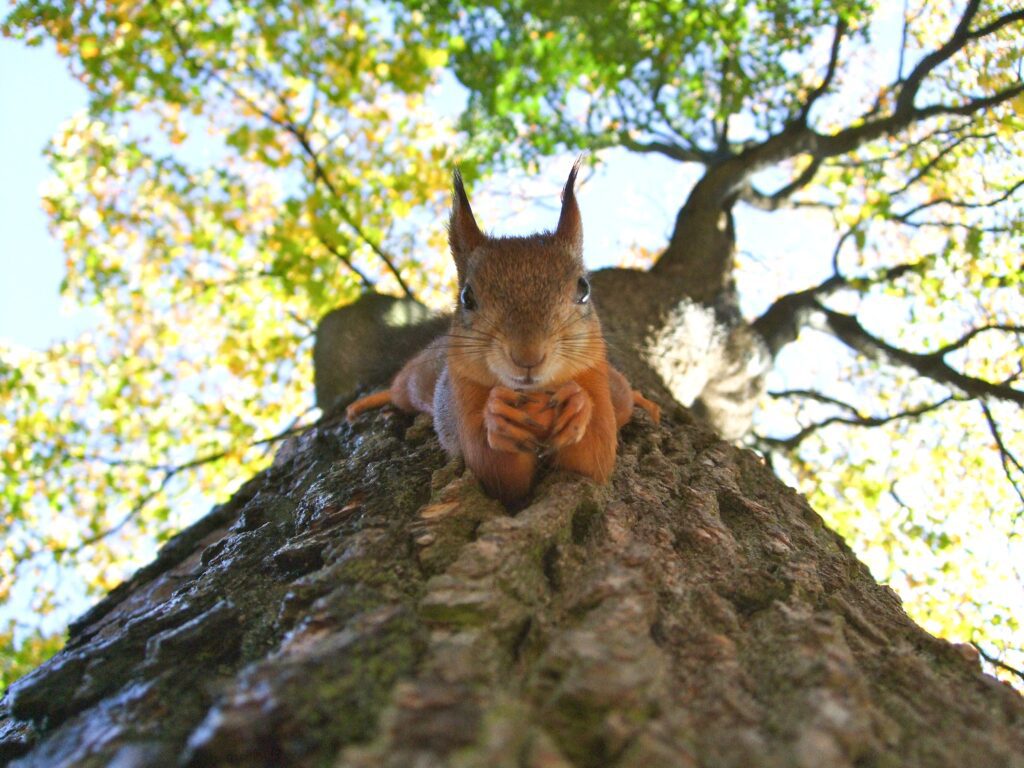
Grabbing that moment in my mind, I wondered: is this what makes us sick and anxious—when we fall out of step with natural rhythms and live artificial ones? Is this the music that society is offering humanity, a march toward “success”—but success in what? Being “someone”? Having a bigger house? A better car? More glamorous friends? A beautiful body, fashionable clothes, expensive jewelry? Makeup to filter my face and apps to filter my social life? Adding and deleting people, spying, making wishlists, spending hours with catalogs of shoes? Or becoming an expert in baking muffins, making perfect braids, learning more languages, following diets, the benefits of drinking green juice, doing yoga, being incredibly “special” in a multitude of ways . . . the list is simply infinite.
The rhythm of the list plays a song that is simply too fast for us to keep up. Soon my heart began racing and I felt a cold sweat. Even “good” things are thrown into this bottomless bucket and are flattened by all other things. Learning yoga and how to create new hairstyles for my pet can have the same priority. We have lost any sense of value, and we have lost ourselves. Society sings its siren song: “I am offering you everything, you do not even have to go to India to learn yoga. Do it from home and in a month you can become a specialist and earn lots of money.” This is the music we are so often hearing and dancing to, the repeating choreography of the masses.
It’s clear that modern Western culture is designed to take us away from ourselves and offers “solutions” to fill the inner void with false needs. It makes no sense, for example, to invest so much in the pharmaceutical business, while we make no effort to stop using pesticides for our foods or to halt the carbon dioxide released into the air we breathe. This alone would, without a doubt, diminish many of our numerous ailments.
We live in a society that enriches a select group of people (and companies), who need sick people to profit from by peddling medications. Such a society needs depressed people to buy shoes, cars, and holidays (happy people are not very profitable: in 2020 alone, the global market for antidepressants was exceeded US$13.5 billion).1Global Market Insights Such a society needs people with low self-esteem who will chase the false comfort of a social media “like” or a new follower.
We are the product and we are the content producers for all social media. We work for free, slaves to the addictions that society has created. We fall without resistance, like moths throwing themselves into the flame. One needs extreme awareness to avoid the trap of believing that one needs just one more thing to feel, to experience, to be noticed.
We like to talk about love, peace, balance, and nature, yet we don’t live it. Instead, we photograph it, write about it, post about it on social media, and even sing about it.
The Hungarian-Canadian physician, author, and thinker of our time Gabor Maté has observed that we think we need “something” to feel joy. However, Maté counters, we are born joyful, like a smiling baby. But over the course of time we collect things that stand between our hearts and joy, when, in fact, there is nothing we need to attain—rather we need to get rid in order to make room for joy.
Ailton Krenak, a renowned indigenous leader and author from Brazil observes (my translation):
We are in a sort of trance from this nefarious reality of consumption and entertainment to such an extent that we have become disconnected from the living organism of the Earth. Driven by a system that constantly offers us new merchandise to distract us, we consume compulsively and ignore the meaning of existence.
And in another paragraph, translated from the Portuguese version of “The Machine for Making Things” in his book Life Is Not Useful, Krenak says:
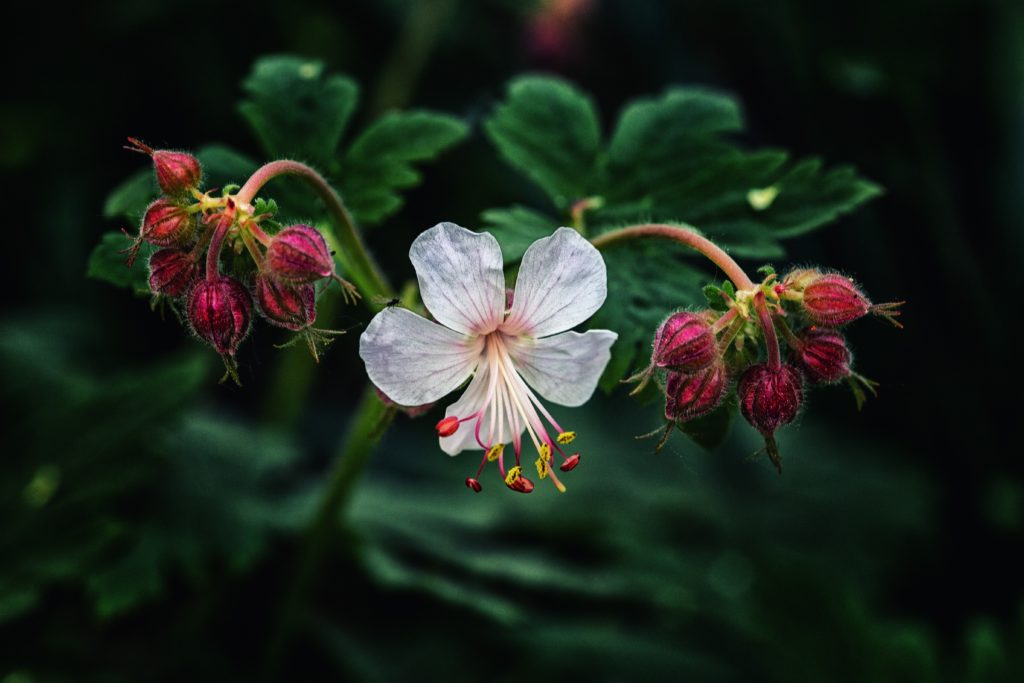
The planet is telling us, “You’ve gone insane, you’ve forgotten who you are, and now you’re lost thinking you’ve accomplished something with your toys.” For the truth is that all that technology has given us are toys. The most sophisticated one we have is one that puts people in space. And it’s also the most expensive—a toy that only about 30, 40 guys can play with. Of course, there are billionaires wanting to play with that. Which makes me think that this imaginary humanity, in addition to having tremendous spiritual childishness, is incapable of criticizing its history. A history that, most of the time, is one of shame. What is there to celebrate in the fact that we can speak live to 3,000 or 4,000 people with a little device that is the product of a civilization that is consuming the Earth to make toys? It’s just that the Earth is a much bigger organism than we are, much wiser and more powerful, and we are its most useless toy. Earth can easily shut us down by taking our air, it doesn’t even have to make a sound.
Nature has become an idea, and we live in nature as a concept. We can explain and rationalize, but only in ways that separate and distance us from the experience and transformation that is going on right now in our bodies and soul. Something within us is blind to letting nature traverse us in a conscious way so that we start respecting and honoring it in a virtuous way.
There is a short illustration of this from the contemporary Brazilian philosopher Viviane Mosé, who tells us the tale of a small kingdom where the people wanted to create an accurate map of the entire realm. However, they became so specialized and so skilled at mapmaking that they ended up making a life-sized map of their kingdom. The question then became what is the use of such a map? People began living on the map rather than in the kingdom itself.
All of this is to say: we like to talk about love, peace, balance, and nature, yet we don’t live it. Instead, we photograph it, write about it, post about it on social media, and even sing about it. Instead, we should ask ourselves whether we are living in the “real” world or just a detailed conceptual version of the original from which we were born. Sadly, we miss and feel a painful longing because of our own lack of presence and the lack of the “real” presence of everything else. We look for bodies inside dreams, we look for presence in our minds, we look for the idea of love in bodies of pain. We live ideas, but we are blind to nature as it is—nature out there and our own inner nature have become strangers.
Resting there in my hammock, on the veranda, each day spending more time in “silent conversation” with space and nature, I slowly began to sense nature’s rhythm. My senses recognized the passage of time and I noticed how certain birds appeared at certain times of the day . . . everything has a rhythm. And by observing the outer rhythm, I recognized my own inner rhythm.
Do not be afraid to get rid of all that is preventing you from connecting with the original joy of simply being alive. Life is enough.
Besides experiencing the lockdown, I was also going through my divorce. It was all too easy to reach out to anything that could momentarily take me away from my pain and sense of abandonment—even reaching for medication. I felt a real urge not to lose the strings that connected me to my nature. This was urgent—I was walking on thin ice, on the precipice of insanity. At my feet lay all my sacred values and burned ashes . . . I could flip the world and see all clearly or I could let myself fall and be dragged down by the force of gravity.
And, as Gabor Maté observed, one needs extreme determination not to fall, because it is just at those vulnerable moments that society offers comforts outside of ourselves that give false and momentary relief. It is as difficult to stay true to our own nature and rhythm as it is difficult to not be aggressive toward nature by continuing our technological “evolution.” It’s very interesting to observe how we treat nature as a collective movement; this is also how we treat and deal with our own inner nature.
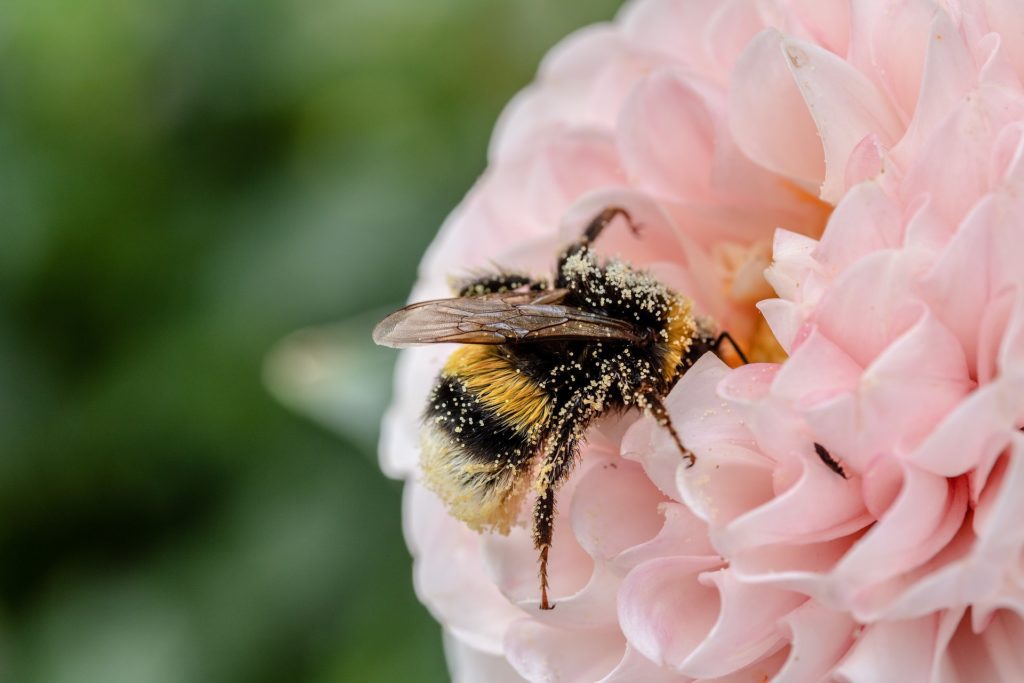
The shift to true awareness has to be born like the rising sun, inside our hearts and consciousness. As individuals, we need to take responsibility and ask questions constantly: “Do I really need this?” and “Who’s really paying for what I think I need?” This is not about money, it’s about nature and about other humans who are underemployed or even enslaved, isolated from the truth and imprisoned by ignorance and sometimes even by hunger.
While in our air conditioned rooms (systems that poison water, air, and soil) we exist in a kind of trance, blinded and desensitized to what is happening to the sky, to the rivers, to the Earth—soil permeated with pesticides, forests razed for crops or cattle (because humans consume billions of animal lives each day) and oceans filled with plastics that will float for million of years.
To open our eyes is not easy. To be awake demands responsibility, action, and detachment from our vanity and subtle addictions. Even baby steps, like carrying a reusable water bottle instead of buying disposable plastic, are a worthwhile beginning. At the supermarket, refuse plastic bags, bring your own. If you eat meat, reduce your consumption to once a week. Buy less. Live simply.
We can begin to notice that we need very little for our basic survival, which the Earth can guarantee for every living being. But the inner life can only be fed and maintain its healthy balance if we look and listen in the solitude of the night and the silence of the sky, and if we rebuild our values and our connections with those who are near us. We tend to underestimate who is near, even our own parents or children or elders, and how much time we spend engaging with them.
Sometimes we are diverted by the feeling that somewhere else, not here, something better is happening (frequently referred to as FOMO, the fear of missing out). Be aware of the technology of your own brain, watch the thoughts that can work for you or against you. To know oneself has never been so urgent as now. We have all that we need, so just recall the origins, the essence, in silence and presence. Only with space and air can we flourish. Do not be afraid to get rid of all that is preventing you from connecting with the original joy of simply being alive. Life is enough.
Suspending the sky is expanding everyone’s horizons, not just humans. It is about our memories, a cultural heritage of the time when our ancestors were so attuned to the rhythm of nature that they only needed to work a few hours a day to provide everything needed to live. For the rest of the time you could sing, dance, dream: everyday life was an extension of the dream.
This article was originally published on Buddhistdoor Global. It is reprinted here with permission.
References
- 1

